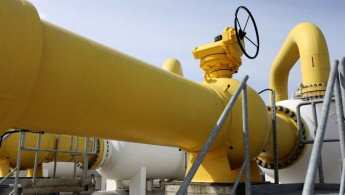German gas commission proposes €35 billion plan to ease price pain
Germany's expert commission, charged with drawing up plans to ease the impact of high gas prices on consumers, delivered on Monday its policy proposals to Chancellor Olaf Scholz whose government faces pressure to curb inflation.
Following 35 hours of consultations, the commission unanimously agreed on its recommendations to the government, it said in a statement.
A draft of a paper seen by Reuters showed the commission favoured the state giving households and small and medium-sized businesses a one-off payment worth one month's gas bill this year and a mechanism to limit prices from next March or April.
The one-off payment, planned for December, would cost the government around €5 billion ($4.86 billion), a source familiar with the negotiations told Reuters on condition of anonymity.
The price for both stages of the relief would be €35 billion by early 2024, IMK institute director Sebastian Dullien said.
The commission is still working on a separate scheme for industry.
In a second phase, the state could limit prices by subsidising 60 to 80 percent of projected gas consumption, with consumers paying the remainder at market prices, incentivising energy savings.
The subsidised price is estimated to be around 12-14 cents per kilowatt hour (kWh), the paper showed.
If adopted, the scheme would be paid for by a €200 billion relief package Scholz's government announced last month to reduce the impact of energy prices on Europe's largest economy.
The commission will present an intermediate report at a news conference on Monday.
Russian energy giant Gazprom suspended gas deliveries to Germany for maintenance on a major pipeline on Wednesday. Germany, which is heavily dependent on Russian gas, has accused Moscow of using energy as a "weapon".https://t.co/4tlS7uW7eV
— The New Arab (@The_NewArab) August 31, 2022
The government is expected to adopt its main findings.
Experts say the advantage of a one-off payment is that it provides immediate relief.
The disadvantage is that it does not encourage reduced energy use even though it has been estimated that at least 20 percent of gas savings are needed to avoid shortages.
The brake on gas prices, based on the 60 to 80 percent subsidy, is expected to take longer to implement.
(Reuters)





 Follow the Middle East's top stories in English at The New Arab on Google News
Follow the Middle East's top stories in English at The New Arab on Google News


![22 Arab countries at COP29 have rejected the targeting of fossil fuels [Getty]](/sites/default/files/styles/image_330x185/public/2024-11/GettyImages-2184289638.jpg?h=199d8c1f&itok=ptHl5bec)